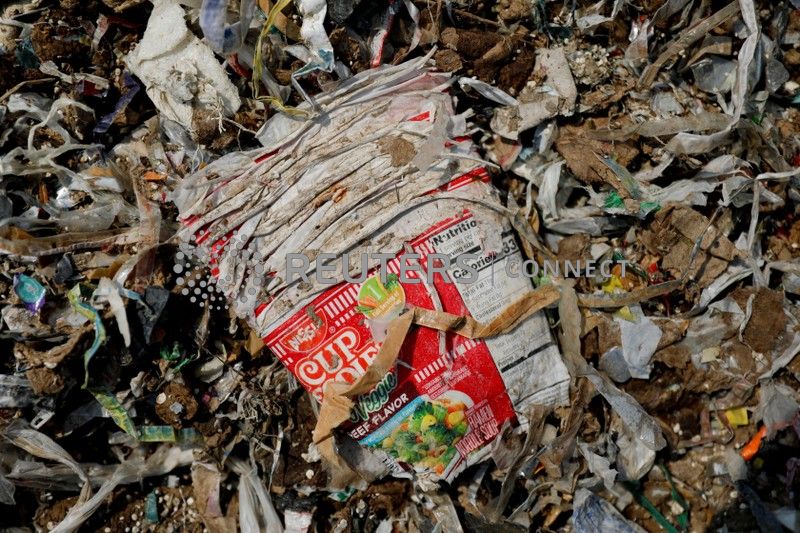JAKARTA (Reuters) – Indonesia’s exports of recycled plastic have plunged by 70% in the past few months due to a shortage of materials needed for production since Jakarta tightened rules on imported waste, an industry body said on Friday.
In June Indonesia joined a number of other Southeast Asian countries in sending back imported trash after a spike in shipments from Western countries after China banned imports.
Indonesia’s plastic recycling industry uses imported plastic scraps in its products, said Akhmad Ma’ruf Maulana, chairman of the Association of Indonesian Industrial Plastic Exporters and Importers.
A shortage of scraps means members of the association could only produce 20%-30% of their normal output and have been forced to send home thousands of workers, more than half of their workforces.
Indonesian authorities sent back around 100 tonnes of paper waste in June because it was contaminated with material including plastic, rubber and diapers.
Since then the country has increased monitoring of incoming imports of scraps, resulting in long delays at ports and some re-exports of the waste.
Some containers of scraps have been waiting for inspection at ports since May, Maulana said, resulting in additional costs for importers.
“We need to be nurtured, not destroyed. This is destruction towards our industry that we’ve built for years,” he said.
Industry Ministry data shows that Indonesia’s plastic recycling industries usually sourced 913,000 tonnes of plastic waste domestically each year and import around 320,000 tonnes.
This year, the ministry initially estimated export potential for recycled plastic at $441 million, up from $370 million in 2018.
“It was an optimistic scenario, but with current restrictions, we are no longer that optimistic,” said Taufiek Bawazier, a senior official at the Industry Ministry told reporters.






